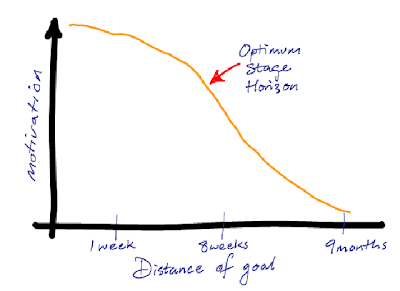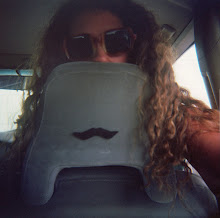Dear Thesis,
This past Saturday marked my 28th revolution around the sun. I feel awfully dizzy.
I made an overdue trip to the laundromat tonight. All my clothes, towels, sheets, blankets and kitchen rags filled four washing machines. And after loading them up, I decided to let myself sit and wait and be bored for a change, instead of spending my allotted 26 minutes running errands to keep busy. I had my i-pod with me, but no headphones, so I just sat on the folding counter and waited. I listened to the sounds of the machines with my eyes closed for a while. Then I looked around and read everything I could possibly read. I read and re-read the instructions on the undersides of the open washing machine lids, which had pictures showing how to load the machine properly, and listed reasons why one should choose hot, cold, or warm water, depending on clothing color (I always choose hot because I like to imagine it disinfects, but my clothes have been slowly growing smaller and smaller). I also read all the flyers on the bulletin board, the instructions on the fire extinguisher, and the backs of the detergent bottles. Then, after the 26 minutes were up, I loaded my clothes into the dryer and decided I wasn't sufficiently bored enough, so I waited some more. It took another 60 minutes for my clothes to tumble out their moisture. And it was at that time that I began to think.
It's funny that it took four loads of laundry and 86 minutes of boredom to inspire me to write you, Thesis, but it also makes sense.
I have been thinking a lot about time lately, probably because I just had a birthday. My specific thoughts on the subject are scattered, and mostly in the form of questions - for instance, does the fly that just landed on my arm experience time differently from me? ... do I look like I'm moving in slow motion to him?... (that encounter and subsequent thought occurred at the laundromat tonight) ... has my perception of time changed as I've gotten older? ... it does seem to increase in velocity exponentially from year to year ... does time have a terminal velocity? ... is my sense of time directly related to my present state of awareness? ... when I'm unaware, distracted or busy, time seems to increase in speed ... whereas, when I'm fully aware and present in a moment, time slows down, often dramatically.
Sometimes I like to stand by the stove and watch a pot of water slowly heat up and begin to boil, just to prove the saying wrong.
I am obsessed with all the different ways of measuring time - the typical measuring systems, like clocks and calendars, as well as the atypical systems that I discover through daily observation, like the little ball of lint produced and discarded by my lover's bellybutton every day, or the collection of yogurt containers my roommate has acquired under the sink by emptying approximately one per week during her habitual late-night snack sessions. Our days are numbered by our daily rituals. The time passes, often unnoticed, but evidence of its passing is everywhere around me. At this very moment I can hear my neighbor snoring in the apartment above mine. The rhythm of his breath is like its own form of clock, punctuated by the ticking of his snores. How many snores did it take me to write that sentence? About 8 or so, I would say.
During the year and a half I worked in Manhattan I would begin every morning with a cup of coffee and a Peppermint Patty (there is no better way to begin a day of work than with candy). I was grateful for my job, but the daily routine and predictability of my schedule eventually made me extremely unhappy. One night I had a dream, and in my dream I came upon a strange conveyor belt. It was built on a long, steep incline, so high that I could barely see the top, and so long I had to walk for quite a while before reaching the other end. On the narrow belt was a single-file line of coffee cups that were slowly making their way to the top of the hill, where they would eventually topple over the edge, fall gracefully through the air, and then smash on the floor, forming a huge pile of broken cups at the bottom. I woke the next morning with the realization that the disposability of a single day can seem justifiable, but those days pile up so quickly. Shortly after, I quit my job.
I eventually made that dream into a sculpture, titled "Coffee Cup Conveyor Belt Calendar". Except, in reality the conveyor belt can only hold seven cups - one for every day of the week - and the cups are made of unfired porcelain. Once all the cups have been broken, the unfired pieces can be gathered and reconstituted into clay slip, and the slip can be used to make a new batch of cups. That way, the cycle can begin again, and again, without end.
Yours truly,
Alicia




















